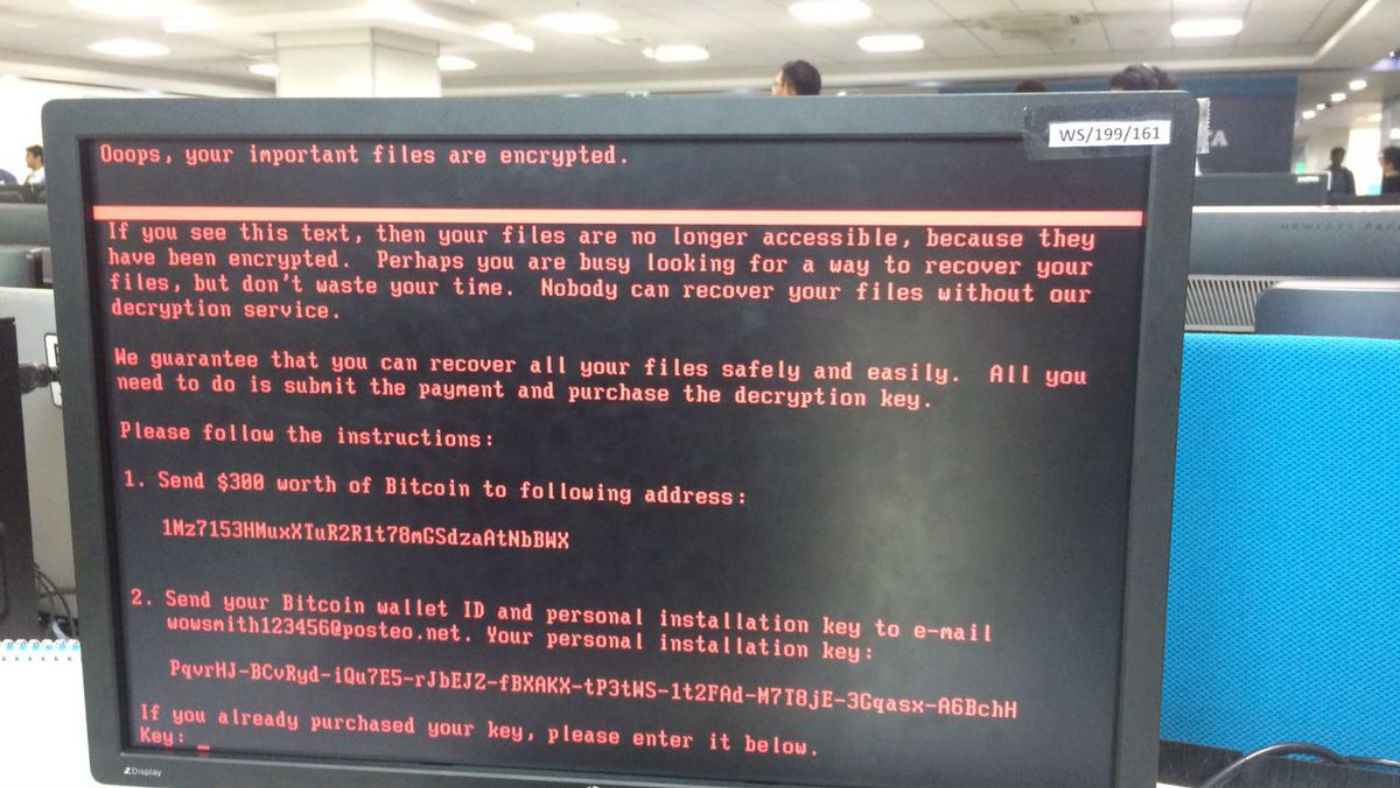New ransomware attack spreads across the world
Hackers demand $300 in Bitcoin for code to unlock computers around the world

A free daily email with the biggest news stories of the day – and the best features from TheWeek.com
You are now subscribed
Your newsletter sign-up was successful
A major ransomware cyber attack has struck computers around the world, with hackers demanding $300 (£234) be paid to an anonymous Bitcoin account to decrypt users' data.
Computers in Ukraine and Russia, including the country's biggest oil company, were hit first, before the attack spread to the UK, Netherlands, France, Norway, Spain and Romania.
Chernobyl's nuclear power plant "also had to monitor radiation levels manually after its Windows-based sensors were shut down", the BBC reports.
The Week
Escape your echo chamber. Get the facts behind the news, plus analysis from multiple perspectives.

Sign up for The Week's Free Newsletters
From our morning news briefing to a weekly Good News Newsletter, get the best of The Week delivered directly to your inbox.
From our morning news briefing to a weekly Good News Newsletter, get the best of The Week delivered directly to your inbox.
"Online records showed that 30 victims had paid the ransom," says the New York Times. However, "other victims may be out of luck, after Posteo, the German email service provider, shut down the hackers' email account".
Cyber security experts say the ransomware appears to exploit the same vulnerability in Microsoft Windows as a previous attack which crippled the NHS in May.
"It included code known as 'Eternal Blue,' which cyber security experts widely believe was stolen from the US National Security Agency (NSA) and was also used in last month's ransomware attack, named 'WannaCry'," Reuters says.
Bill Wright, senior policy counsel for cyber security firm Symantec, said the nature of the ransomware made it difficult to fight.
A free daily email with the biggest news stories of the day – and the best features from TheWeek.com
"Once you unleash something that propagates in this manner, it's impossible to control," he said.
-
 The Week Unwrapped: Have televised confessions quelled protests in Iran?
The Week Unwrapped: Have televised confessions quelled protests in Iran?Podcast Plus, why has Elon Musk turned from Mars to the Moon? And will the BBC prove to be a puzzles champ?
-
 The week’s best photos
The week’s best photosIn Pictures An Andean god, a rogue squirrel, and more
-
 AI surgical tools might be injuring patients
AI surgical tools might be injuring patientsUnder the Radar More than 1,300 AI-assisted medical devices have FDA approval
-
 Epstein files topple law CEO, roil UK government
Epstein files topple law CEO, roil UK governmentSpeed Read Peter Mandelson, Britain’s former ambassador to the US, is caught up in the scandal
-
 Iran and US prepare to meet after skirmishes
Iran and US prepare to meet after skirmishesSpeed Read The incident comes amid heightened tensions in the Middle East
-
 Israel retrieves final hostage’s body from Gaza
Israel retrieves final hostage’s body from GazaSpeed Read The 24-year-old police officer was killed during the initial Hamas attack
-
 China’s Xi targets top general in growing purge
China’s Xi targets top general in growing purgeSpeed Read Zhang Youxia is being investigated over ‘grave violations’ of the law
-
 Panama and Canada are negotiating over a crucial copper mine
Panama and Canada are negotiating over a crucial copper mineIn the Spotlight Panama is set to make a final decision on the mine this summer
-
 Why Greenland’s natural resources are nearly impossible to mine
Why Greenland’s natural resources are nearly impossible to mineThe Explainer The country’s natural landscape makes the task extremely difficult
-
 Iran cuts internet as protests escalate
Iran cuts internet as protests escalateSpeed Reada Government buildings across the country have been set on fire
-
 US nabs ‘shadow’ tanker claimed by Russia
US nabs ‘shadow’ tanker claimed by RussiaSpeed Read The ship was one of two vessels seized by the US military